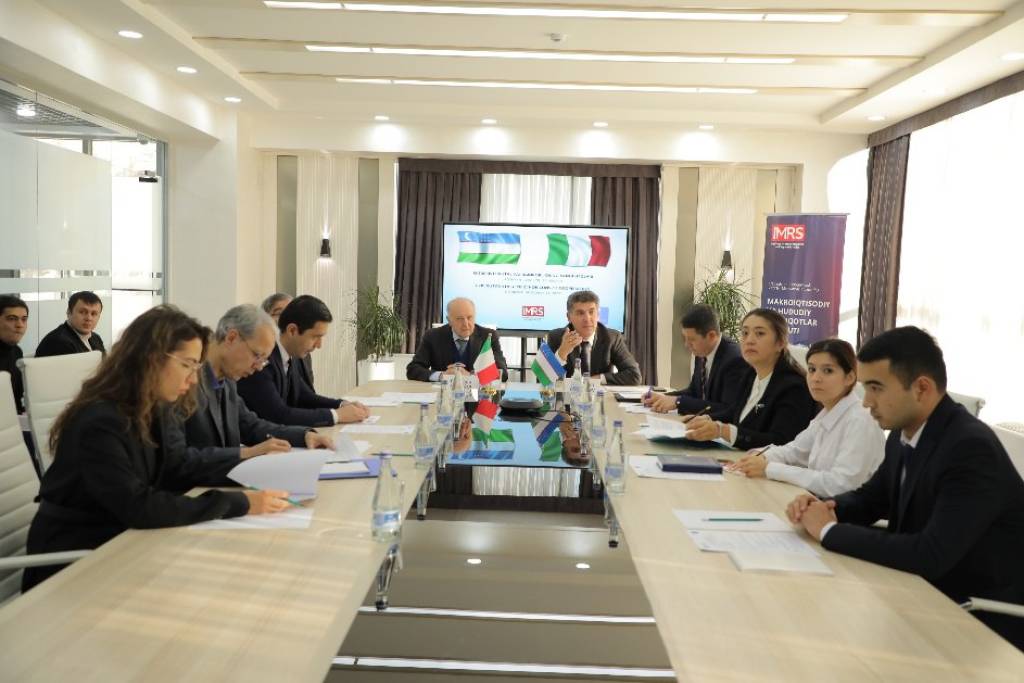High-level dialogue promotes the deepening of cooperation between Uzbekistan and Italy

A conference organized by the Institute for Strategic and Regional Studies under the President of the Republic of Uzbekistan (ISRS) jointly with the Mediterranean Institute of Asia and Africa on the topic "Uzbekistan-Italy: new horizons of cooperation" has started today in Tashkent.
In his welcoming speech at the event, First Deputy Director of ISRS Akramjon Nematov provided a comprehensive analysis of the current state of Uzbek-Italian ties, paying special attention to the prospects for the development of cooperation between the two countries.
The expert noted that the friendly and trusting relations established between the leaders of the two countries led to the development of a constructive political dialog, which has reached the highest point in the history of relations between the two countries this year.
The rich negotiations during the official visit of the President of the Republic of Uzbekistan Shavkat Mirziyoyev to the Italian Republic in June this year, as well as the reciprocal visit of the President of the Republic of Italy Sergio Mattarella in November this year reflect the importance attached by the sides to the development of bilateral cooperation.
If during the visit of the Head of Uzbekistan to Rome the focus was on the development of humanitarian ties, prospects for cooperation in education, culture and interaction in the field of environmental challenges, then during the summit meetings in Tashkent the sides emphasized the importance of forming a new economic agenda, attracting advanced Italian high-technology companies to participate in the projects of the Italian government.
In this regard, Akramjon Nematov was pleased to note an increase in the dynamics of trade and economic cooperation. According to him, over the past four years, the volume of Italian investments has increased 7 times, and mutual trade turnover has increased 2 times in 6 years.
Leading Italian companies demonstrate successful examples of cooperation in metallurgy, energy, electrical engineering, agrarian and other industries.
Cultural and humanitarian relations are developing intensively as well, where cooperation in the field of education and cultural exchange are the major components.
"The growing interest in learning Italian in Uzbekistan shows the importance of preparing teachers and the gradual introduction of teaching Italian as a second foreign language in our schools," Nematov explained.
In conclusion of his speech, he expressed gratitude to the Italian side for supporting Uzbekistan's initiatives to deepen cooperation in Central Asia and strengthen regional security.
"Italy is the first EU country to launch a special format of dialog with Central Asia "5+1" to promote a regional approach that considers the specific issues and internal development issues of the five Central Asian states," the expert emphasized.
Speaking about the importance of strengthening multifaceted relations, Akramjon Nematov called for the further development of active cooperation between analytical and research organizations of Uzbekistan and Italy.
"The results of our researches become a significant factor in the process of shaping the foreign policy not only of the two countries, but also influence the strengthening of both bilateral and multilateral ties between the European Union and Central Asia," the expert concluded.






